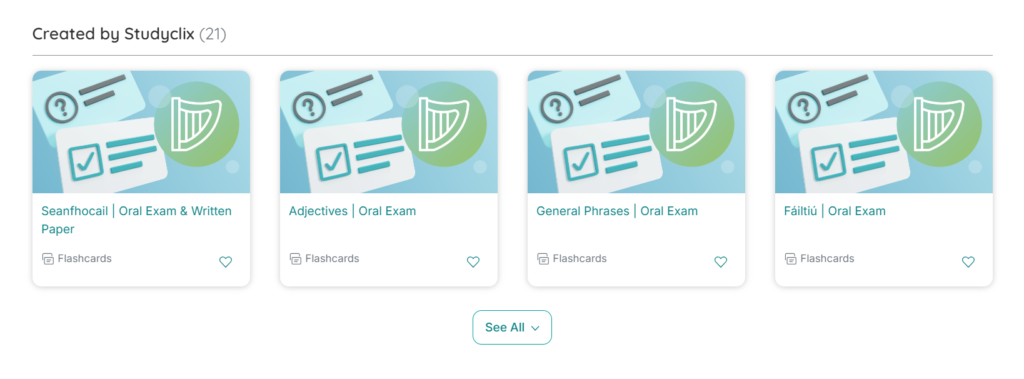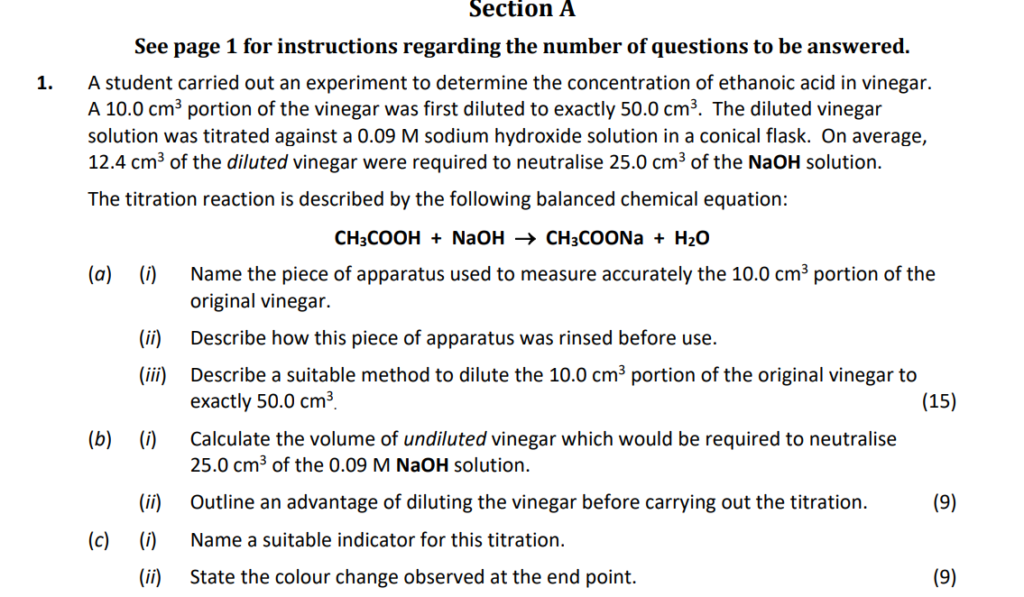The mentality of the majority of Leaving Cert students is that there is a direct correlation between how much they study and how many points they will achieve. If all getting an H1 required was more study, life would be much easier. But that’s not the case.
I was one of those who adopted this mentality, doing approximately eleven hour days every day after the mocks (I left school soon after the mocks to study at my own pace). Although I refused to believe it, I had been experiencing symptoms of burnout long before the actual exams started.

While I ended up doing relatively well, I know now that my study schedule needn’t have been so tiresome.
In this article, I outline my study methods for each of the subjects I took, and provide recommendations as to how effective my methods were, or how I could have adopted a different, more fruitful approach.
Hopefully you find these tricks and tips useful, and they help you secure the much desired H1!
How to get a H1 in Irish
In order to achieve the highest grades in Irish, my chief recommendation would be to prioritise the oral very early on, as this is worth 240 marks of your overall grade (40%).
Tips for the oral:
I found it useful to write a script for myself, where I included sections on myself, my school, my hobbies, my family, my routine.
Also, make sure to prepare for the broader topics that the examiners tend to reserve for the more fluent student, such as the education system in Ireland, the homeless crisis, the strain that the health system is under, the environment and social justice in this country and internationally (war, human rights etc).

I would then learn the key points in each section and do mock recordings with myself, asking myself the most difficult questions I could imagine they would ask and recording my answers to familiarise myself with the environment I would be in.
Writing out this script for the oral made studying for the composition in Paper 1 significantly easier, as these broader topics are often examined here too.
Listen to this:
Another great place to pick up marks is in the listening, which is worth 10%. While completing past paper questions is imperative for practise, an effective method I used was simply listening to Irish radio whilst on a walk, which over time, increases your auditory fluency in the language.
Of course there are more aspects to the exam, but we will cover that in a future article. Let’s move onto the dreaded English
How to get a H1 in English
To achieve top marks in English, an in-depth knowledge of the texts is essential. While you are not required to know a hundred quotes for each text, I would definitely recommend building up quote banks very early on.
Going into the English exam (for the class of 2025), you need know King Lear, your Shakespearean play, inside out. You must know the scenes, acts, the characters in each scene, the quotes, the key moments, everything! It’s tough. But this must be done to even get near the H1.

Master a style. Your style.
Something else I would definitely recommend would be to write using a very set structure. This is something I grasped very late in sixth year, and is something that, if you can master early, will dramatically increase your confidence going into the exam.
The structure I would recommend for every question you answer, barring the essay, is:
1). Topic sentence: This is what you are going to write about.
2). Then, I would find a quotation that supports my topic sentence, and I would finish by expanding on the significance of my quote in relation to my chosen point, breaking my explanation into two paragraphs to make the marks easier to allocate.
3). A conclusion: If this is missing, you might as well not answer the question. It is imperative you have a solid conclusion
Mechanics
Finally, I would recommend having an intricate knowledge of mechanics. By mechanics, I mean the literary techniques that are associated with each literary genre.
This is particularly helpful for the comprehensions and the composition. For instance, I would familiarise myself with the characteristics of personal writing, such as the use of a personal pronoun, a sense of reflection.
That of persuasive writing, such as the use of rhetorical questions, the language of immersion, appealing to the audience’s sense of morality etc.
Understand the genre you are dealing with makes life much easier.
How to get anH1 in Maths
Maths is difficult. I might go as far as saying it’s the most difficult subject. Maths is often a subject that incites fear and uncertainty, simply because the questions that come up every year are totally different.
While we may be able to predict the chemistry experiment that may come up, the maths questions are far less predictable. So don’t even try.
While maths, and especially, higher level maths, requires a huge amount of work, (approximately 30% of your study time), your maths study should absolutely not eat into your other subjects.

To maximise your study time, I would recommend that you make short chapter summaries once you finish a chapter, only jotting down the main formulae used and the step-by-step methods for each calculation. This eliminates the need to go back and review the entire chapter once you begin your revision.
Get into the habit of pacing yourself with exam questions, maybe doing three questions a night with your homework. Thus, you don’t feel the need to do hundreds of questions closer to the exams.
Maths is all about the concepts. If you think you understand a chapter, well you don’t until you can do every past paper question on it.
How to get a H1 in Foreign Languages
To maximise your study time in your foreign language, I would highly recommend perfecting your knowledge of the grammar, as this is what examiners look for when differentiating between a H2 and H1 student.
Don’t just focus on Vocabulary
A key error that I made was simply focussing on vocabulary. I would spend hour upon hour jotting down any new words I came across in my textbook and spend even more hours learning them.
While an extensive knowledge of vocabulary is advisable, it is not the be all and end all. I remember, that, having had two exams on a Tuesday, I virtually had no time to revise all my vocabulary before my French exam on the Wednesday, and focused instead on acing every piece of grammar in the textbook.

As a Leaving Cert student, you are not required to know all the words in a language, but understanding basic terms and investing a little bit of time into revising the keywords of each chapter will definitely help you to write with more variety.
How to get a H1 in Biology
What I would really recommend to those seeking top marks in biology would be to start early. Unfortunately, there are no shortcuts you can take with biology, as the questions tend to require very specific information about the topics.
What helped me immensely was making chapter summaries for each topic with the most important information and reading them back to myself as if I was teaching myself the information.

By doing this, I was not just reading the content, but immersing myself in it, which, for me, enabled greater and faster familiarisation with the material. Highlighting and annotating your notes is also a really good idea to improve memory, especially in relation to keywords.
Remember: Biology isn’t easy. There might be straight-forward chapters at times, but the sheer amount of them can be overwhelming. DO NOT take this subject for granted. You will only get the H1 if you work hard right till the night before the exam.
How to get a H1 in Chemistry
While chapter summaries can prove very useful here too, what I found most fruitful with chemistry, was simply completing exam questions on each topic.
Exam question after exam question
Bearing in mind that there has, so far, been quite a discernible pattern with questions, your best bet is to simply repeat exam questions from previous years and become familiar with the requirements of the marking scheme.
This helped me a lot more than simply reading my notes, as it enabled me to actually practise the calculations and become familiar with what pieces of information were required in my answers.

Conclusion
While these are only a few of the many Leaving Cert subjects you may be taking, I hope you have gained some insight into how you can make the most out of your study time, to make those hours that you spend really count!
I also urge you to have fun and don’t take things too seriously. Do things you enjoy. Meet with friends. Watch TV. When your mind is relaxed, you will be able to focus better.
Try find a hooby, like making a website.

We have teamed up with Bluehost to give you the most exclusive price of $1.99/month. You won’t get it cheaper anywhere else. Making a website is a perfect hobby, and it’s great as a side income too. Make sure to check it out.
I Hope you found this article useful. We will soon publish individual articles on how to get the H1 in various subjects so keep a look out!
Good Luck!
Post Disclaimer
The information contained in this post is for general information purposes only. The information is provided by How to get a H1 in every subject in the Leaving Certificate? and while we endeavour to keep the information up to date and correct, we make no representations or warranties of any kind, express or implied, about the completeness, accuracy, reliability, suitability or availability with respect to the website or the information, products, services, or related graphics contained on the post for any purpose.



